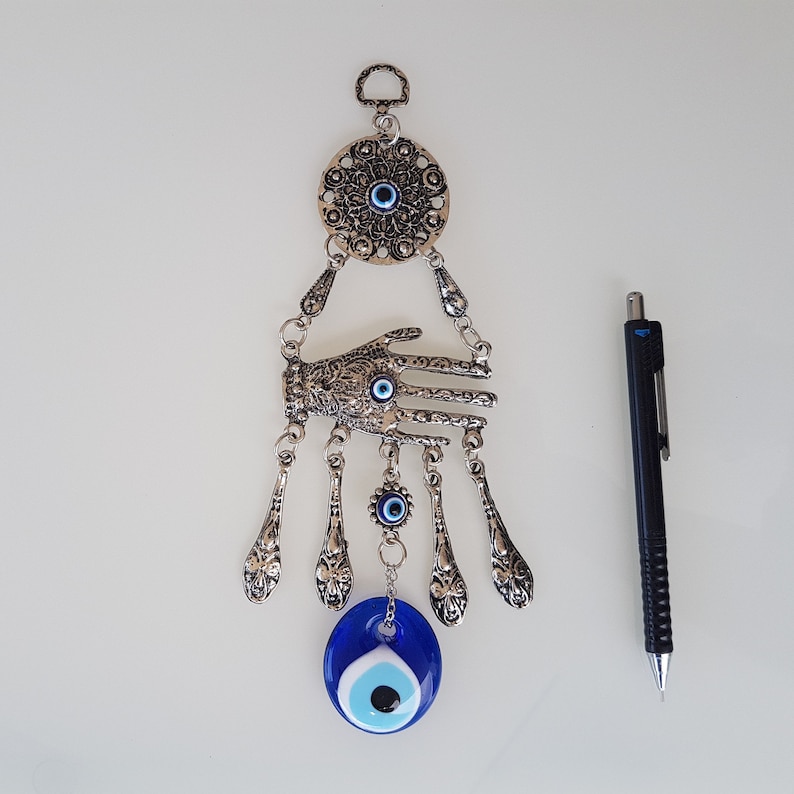
Hamsa and Evil Eye Nazar Hamsa Amulet Protectionhome Etsy
The Hamsa Hand, also known as the Hand of Fatima, has a rich history that dates back to ancient times. Its origins can be traced to various civilizations, including ancient Mesopotamia and ancient Egypt. The symbol has evolved and adapted over time, making its way through different cultures and belief systems.

Hamsa and Evil Eye Wall Hanging Nazar Boncuk Hand of Fatima Etsy India
The hamsa hand symbolizes protection. See it here. In Judaism, the Hamsa's value comes from its connection to the number 5, which has holy associations in the faith. Five is the number of holy books in the Torah, it's one of God's names, and it also reminds the wearer to use their five senses to praise God. 4. Hamsa in Islam
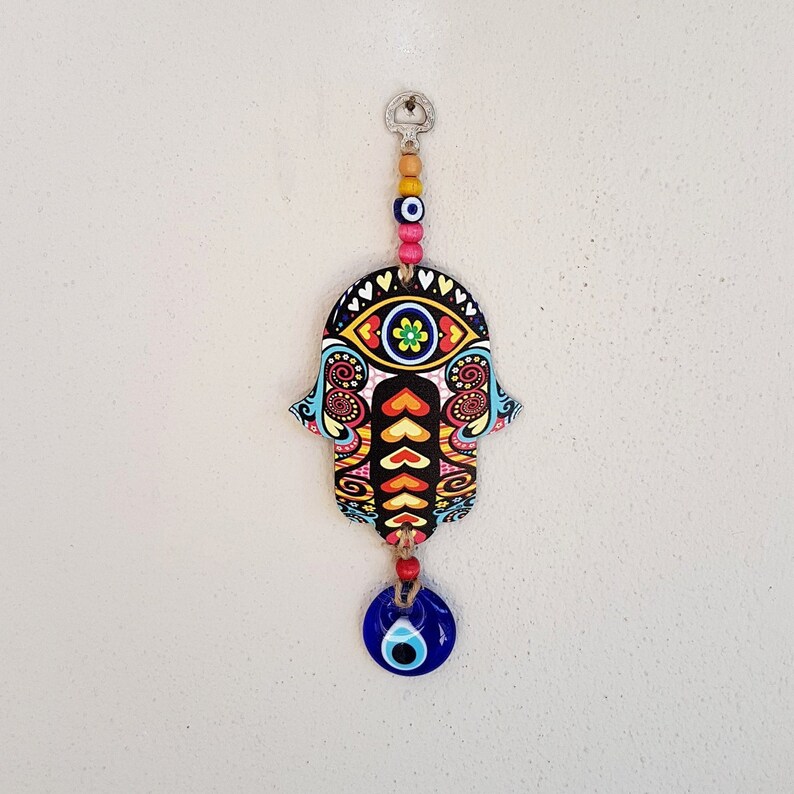
Hamsa and Evil Eye Wall Hanging Nazar Boncuk Hand of Etsy
The hamsa ( Arabic: خمسة, romanized : khamsa, lit. 'five', referring to images of 'the five fingers of the hand'), [1] [2] [3] also known as the hand of Fatima, [4] is a palm-shaped amulet popular throughout North Africa and in the Middle East and commonly used in jewellery and wall hangings.
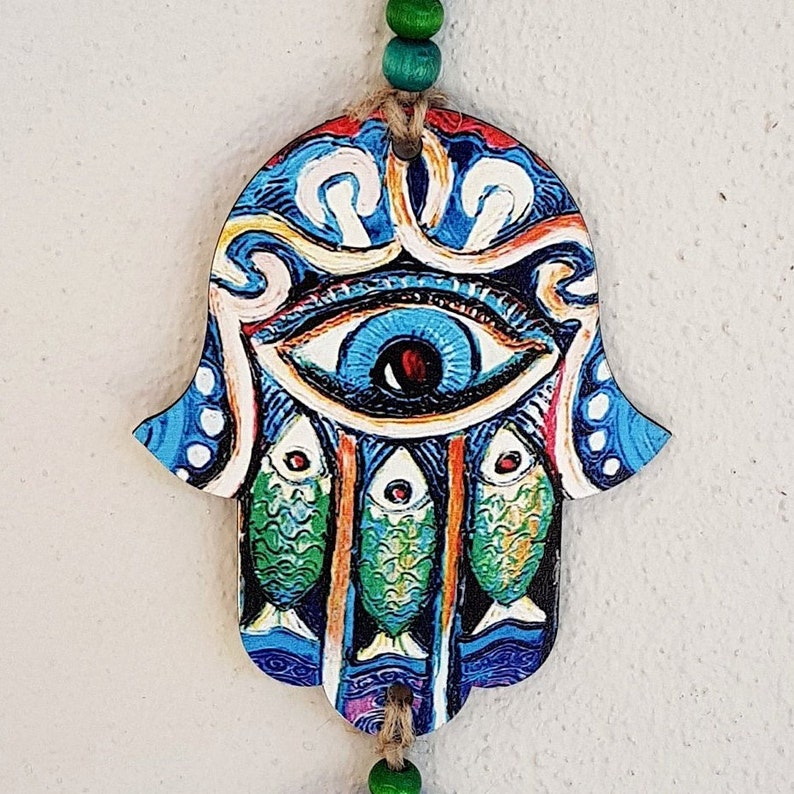
Hamsa and Evil Eye Wall Hanging Nazar Boncuk Hand of Etsy
Just as the nazar safeguards against the evil eye in Islam, other faiths have similar objects deemed to attract good fortune and repel negativity. In Judaism, the hamsa hand and mezuzah on doorposts protect against evil spirits and misfortune. Italian folk culture has the cornicello charm inspired by a horn-shaped amulet used in ancient Egypt.
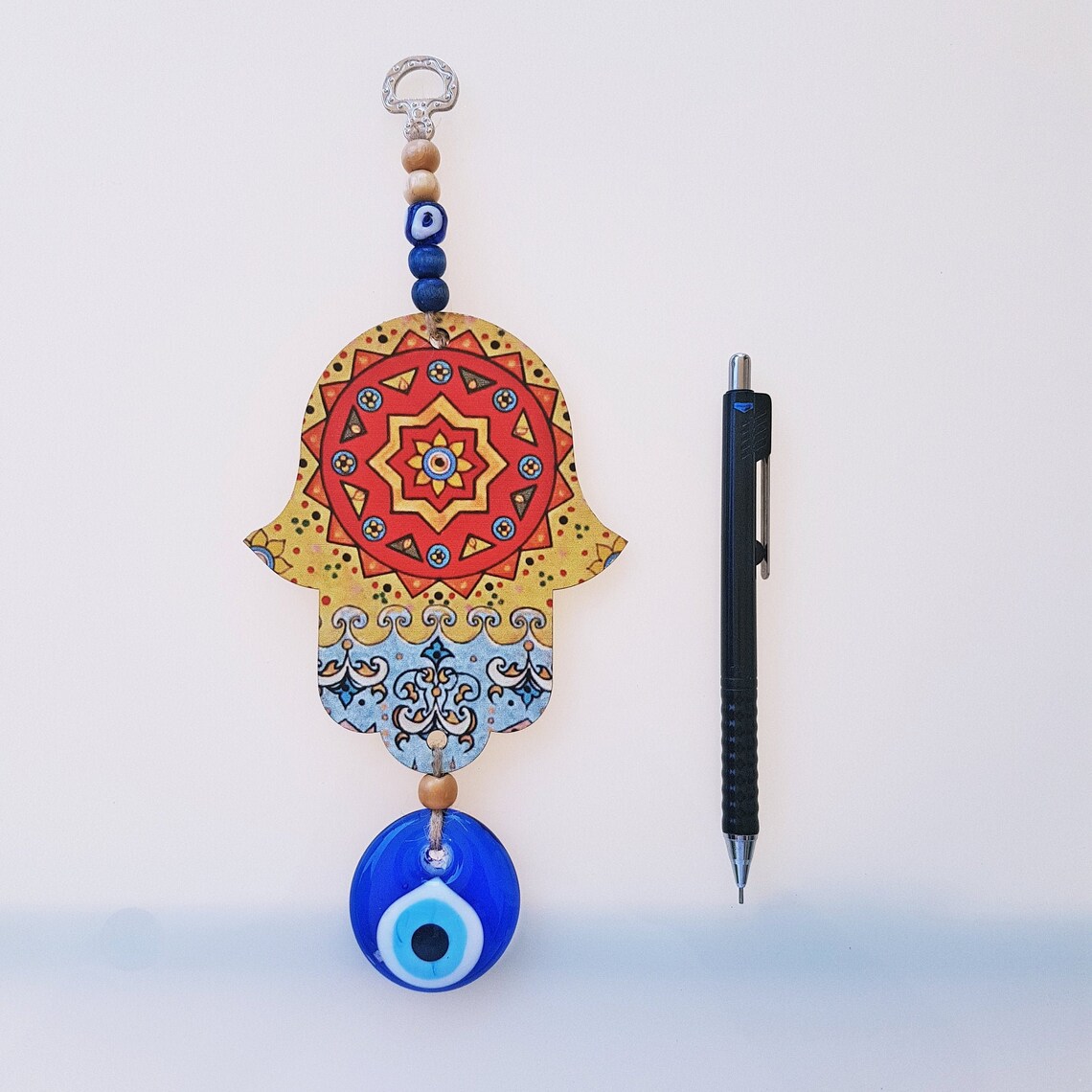
Hamsa and Evil Eye Wall Hanging Nazar Boncuk Hand of Etsy
Hamsa Symbol Protects From Harm Caused By The Evil Eye. To gain a more permanent protection from the Evil Eye, ancient civilizations started using various protection amulets.. Nazar Amulets And Why Blue Color Ward Off The Evil Eye. Many people who fear the Evil Eye buy protection amulets that can be found in many corners of the world. Nazar.
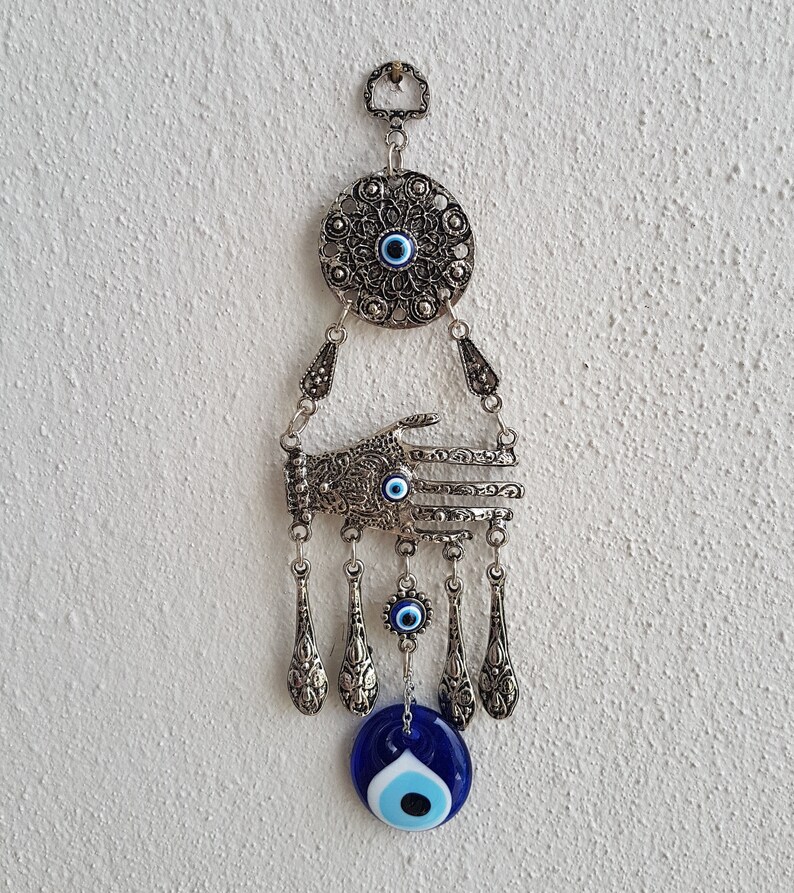
Hamsa and Evil Eye Nazar Hamsa Amulet Protectionhome Etsy
One traditional Turkish talisman, the Nazar, has come into wide use for protection against the evil eye. This talisman, which itself looks like a wide, blue eye, can be worn or hung in a house or vehicle to protect the inhabitants.
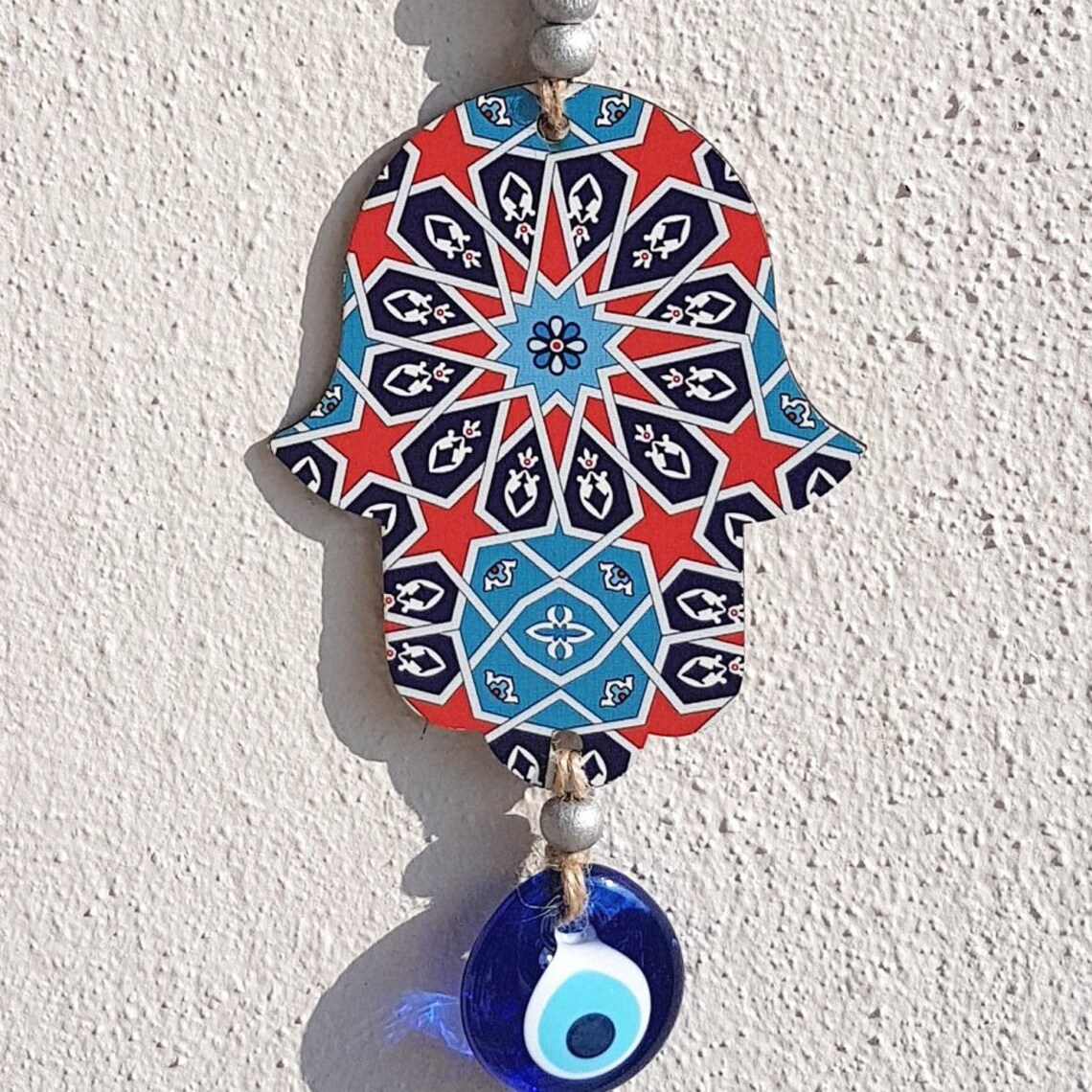
Hamsa and Evil Eye Wall Hanging Nazar Boncuk Hand of Etsy
The Greek eye symbol, Hamsa hand, and Nazar all offer a sense of protection and ward off negative energy, but each carries its cultural significance and symbolism. In conclusion, the Greek eye symbol, Hamsa hand, and Nazar are all symbols associated with protection. While they share the same purpose, their designs and cultural significance differ.
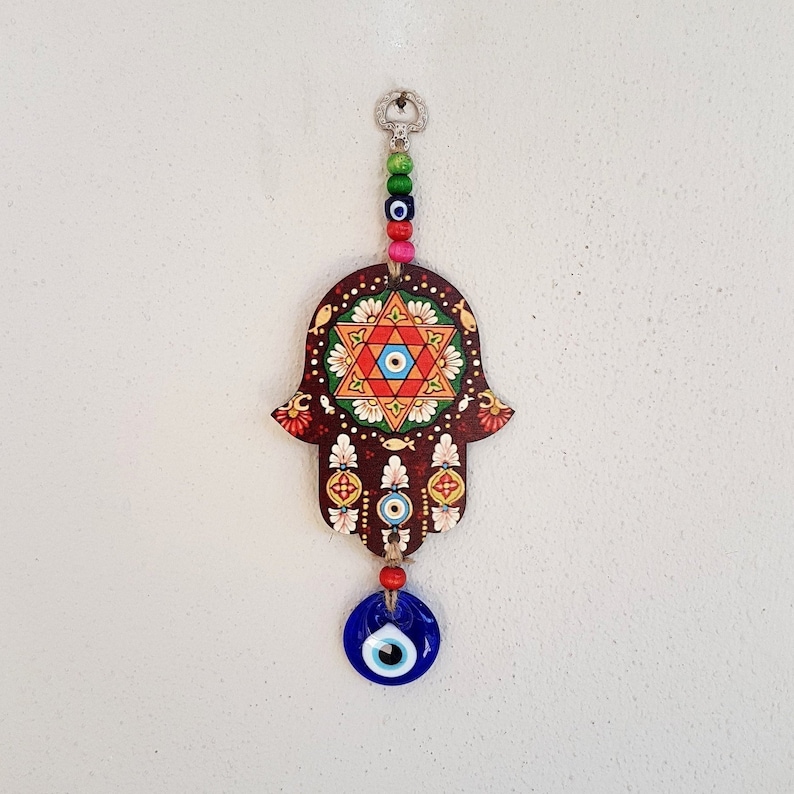
Hamsa and Evil Eye Wall Hanging Nazar Boncuk Hand of Etsy
The hamsa, or hamsa hand, is a talisman from the ancient Middle East. In its most common form, the amulet is shaped like a hand with three extended fingers in the middle and a curved thumb or pinky finger on either side. It is thought to protect against the " evil eye ." It is most often displayed on necklaces or bracelets, though it can also.
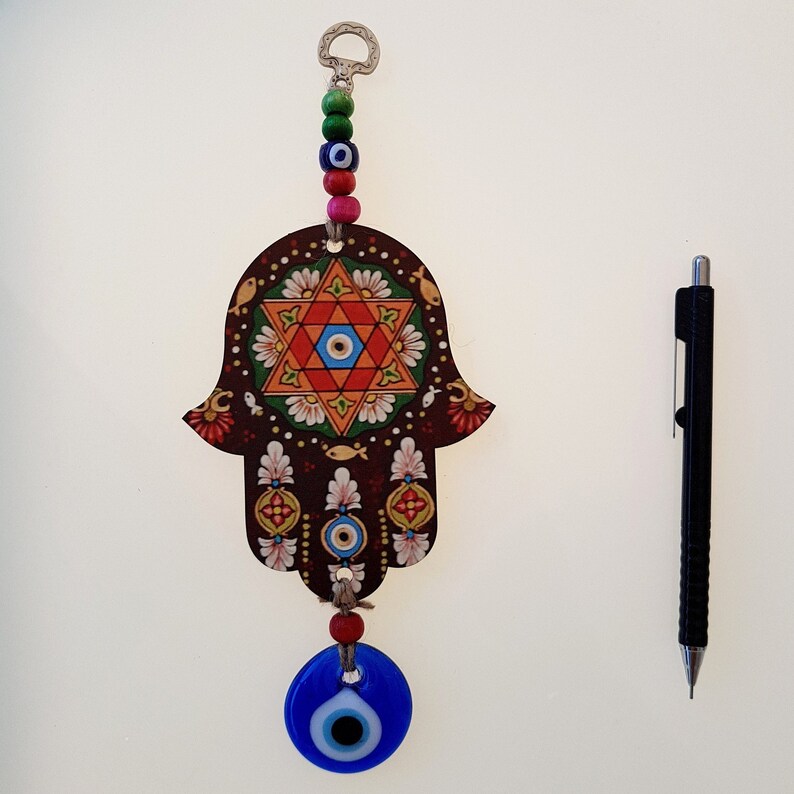
Hamsa and Evil Eye Wall Hanging Nazar Boncuk Hand of Etsy
The HAMSA Smudge is the ultimate smudge of protection. It clears nazar, shields from the evil eye, releases negative energies and grounds your family and home. Nazar is something that could be given intentionally, usually motivated by strong jealousy, or unintentionally, even by a loved one.
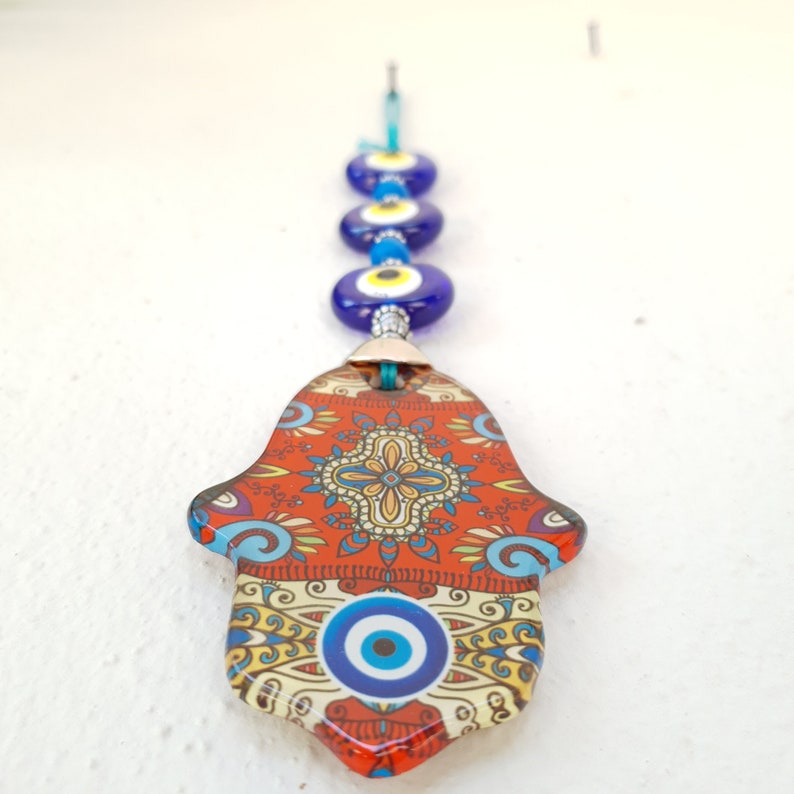
Hamsa and Evil Eye Wall Hanging Nazar Boncuk Hand of Fatima Etsy
The belief in the evil eye, also referred to as "Nazar," dates back almost 3,000 years to ancient Greece and Rome. It's one of the strongest symbolic images in the world. Wearing an evil eye as an amulet is believed to provide protection against evil forces.

Hamsa and Evil Eye Wall Hanging Nazar Boncuk Hand of Etsy
4. The Hamsa. As the written symbols used by Jews, Muslims, and Christians to ward off the evil eye, the Hamsa has a similar meaning and brings luck, happiness, and good health whoever owns one. While it is hard to track the origins of its history, one can quickly get the feeling of an amulet at a glance. 5. The History of the Turkish Evil Eye
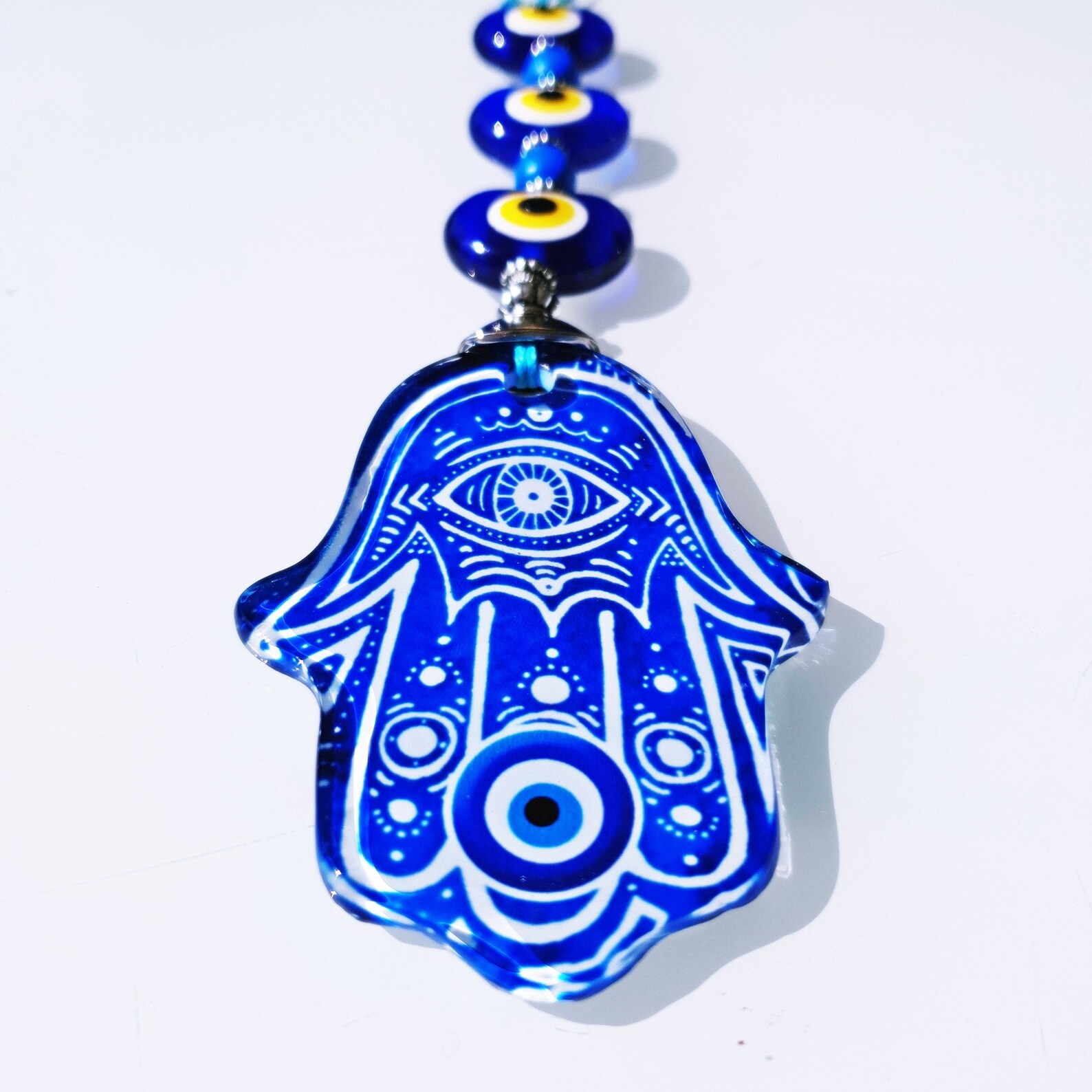
Hamsa and Evil Eye Wall Hanging Nazar Boncuk Hand of Etsy
In Turkish culture, the Hamsa Hand is referred to as the Nazar Boncuğu or the Nazar Amulet. It is believed to protect against the "evil eye" and bring good luck. The Turkish Nazar Boncuğu typically takes the form of a blue and white eye-shaped amulet. It is widely used in jewelry, home decor, and as keychains or car accessories.
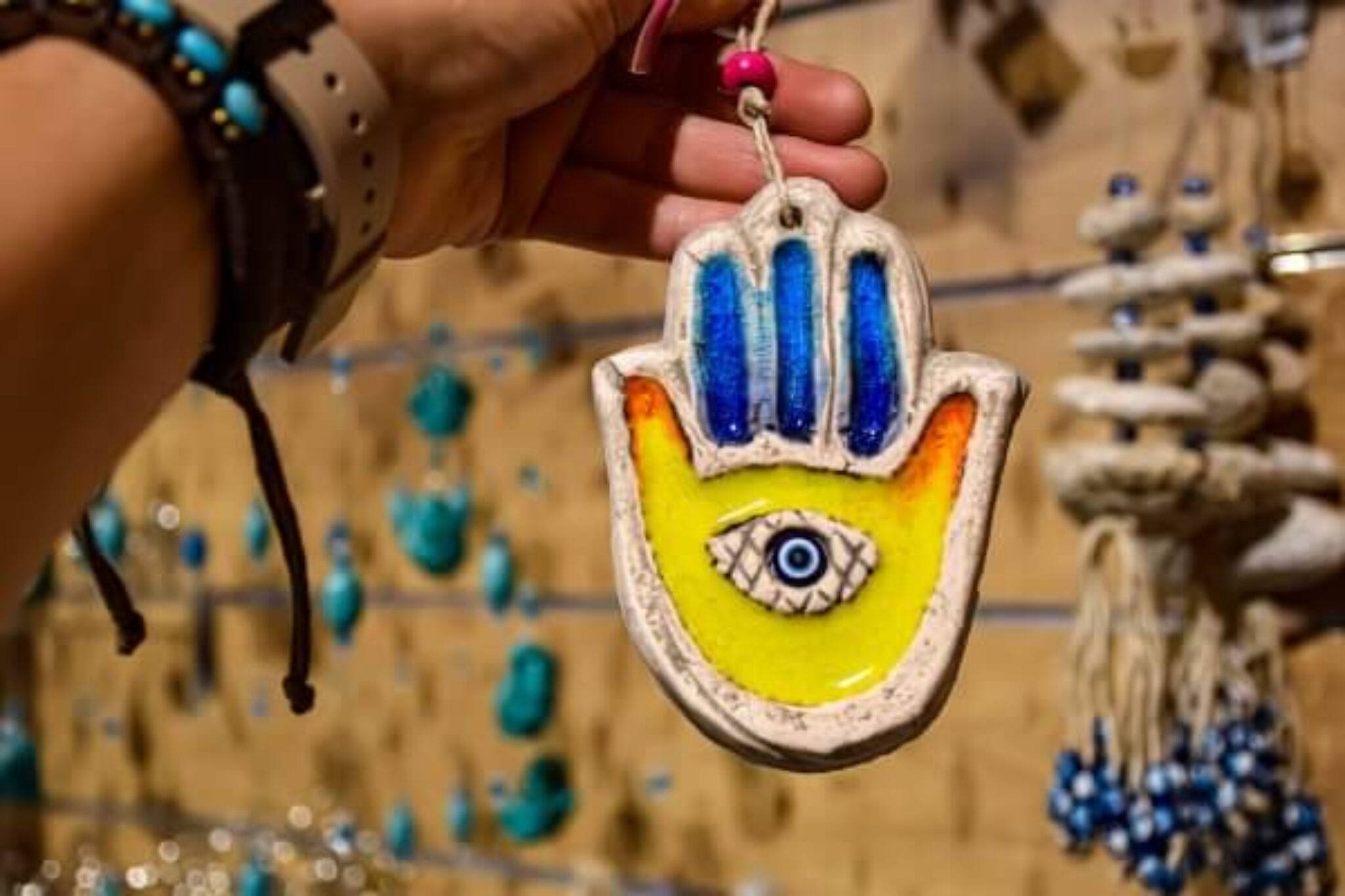
What Is the Nazar Boncugu? — All You Need to Know
The evil eye, also known as "nazar" in Turkish, is a concept deeply embedded in Turkish culture. It is believed to be a curse, a type of negative energy, or a form of dark spiritual power that is brought on by jealousy or envy. It is believed to cause harm and misfortune to a person or their possessions.

Hamsa and Evil Eye Wall Hanging Nazar Boncuk Hand of Fatima Etsy
Check out our hamsa hand nazar selection for the very best in unique or custom, handmade pieces from our gifts for husband shops.
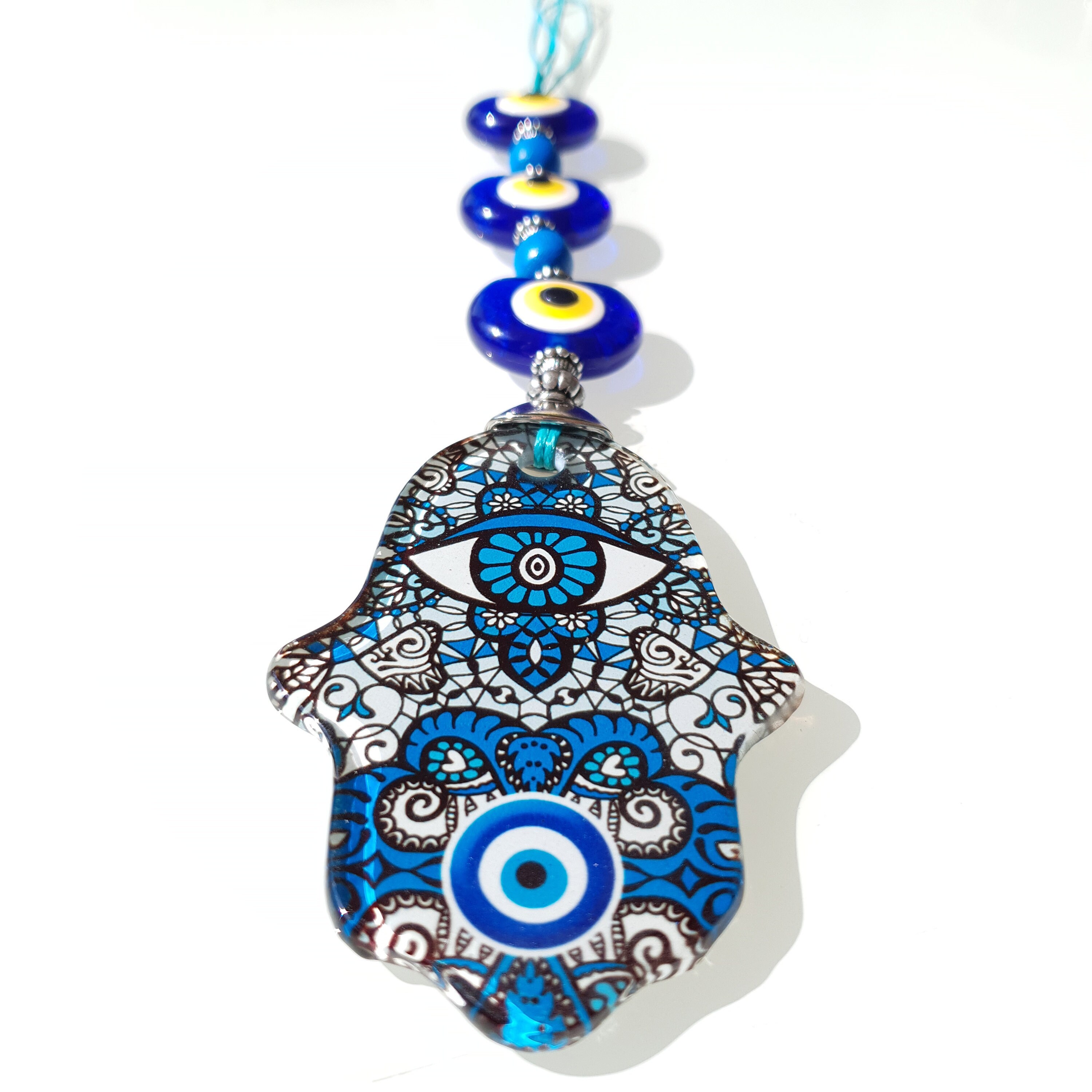
Hamsa and Evil Eye Wall Hanging Nazar Boncuk Hand of Fatima Etsy
Also known as Hmansa, Jamsa, Khamsa, the Hand of Miriam, and the Hand of Fatima, this multi-named cultural symbol dates back to ancient Mesopotamian times and has been used by many societies throughout history as an amulet for protection against the evil eye, as a charm of fertility and luck, and as a bearer of good fortune.
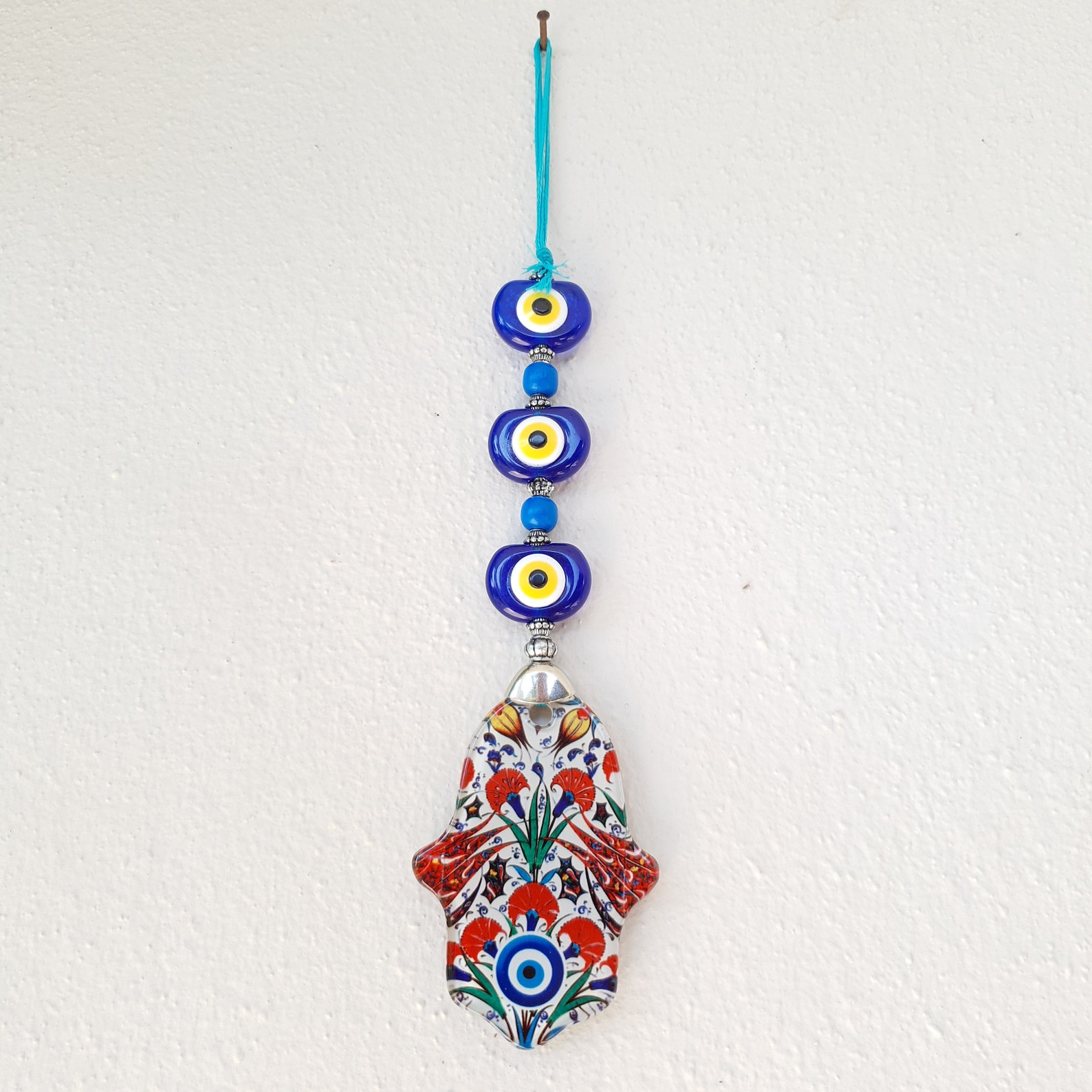
Hamsa and Evil Eye Wall Hanging Nazar Boncuk Hand of Fatima Etsy
Some of the most famous talismans against the evil eye include the nazar amulet, itself a representation of an eye, and the hamsa, a hand-shaped amulet.